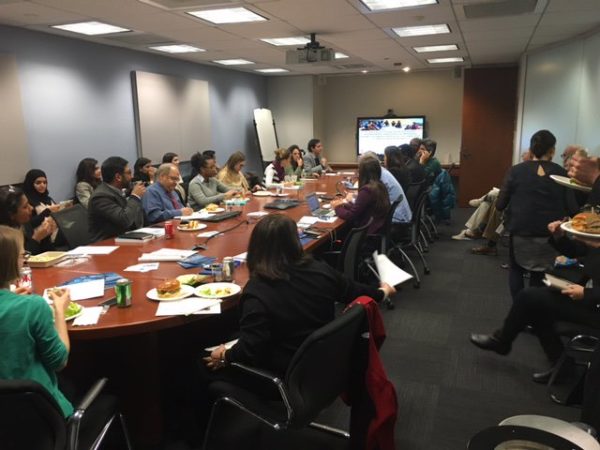
The number of countries with Conditional Cash Transfer Programs (CCTPs) has steadily increased from 27 in 2008 to 53 in 2013. The growing popularity of CCTPs is due to their proven effectiveness in reducing poverty. However, CCTP achievements are often undermined by integrity risks due to fraud, errors, and corruption. Studies of CCTPs in Latin America, Africa, Asia and the Middle East reveal that state led control and accountability mechanisms are not fully effective and fraud, error and corruption persist. Most of these studies recommend the use of social accountability initiatives to complement the state-led efforts.
On February 9, the Partnership for Transparency Fund (PTF), the Global Partnership for Social Accountability, and the Social Protection and Labor Global Practice at the World Bank held a discussion on “Using Citizen Engagement and Social Accountability Approaches in Mitigating Fraud, Errors and Corruption in Conditional Cash Transfer Programs,” with Dr. Vinay Bhargava, Chief Technical Adviser and Board member of PTF, Shomikho Raha, Public Sector Specialist in the Governance Global Practice at the World Bank and Carine Clert, Lead Social Protection Specialist in the Social Protection and Labor Global Practice at the World Bank. The event was chaired by Maria Poll, Capacity-Building Coordinator of the GPSA.
The discussion focused on a recent paper by the Partnership for Transparency Fund (PTF): “Citizen Engagement and Social Accountability Approaches in Enhancing Integrity of Conditional Cash Transfer Programs” which identifies best practices and lessons for greater engagement of citizens and social accountability initiatives.

